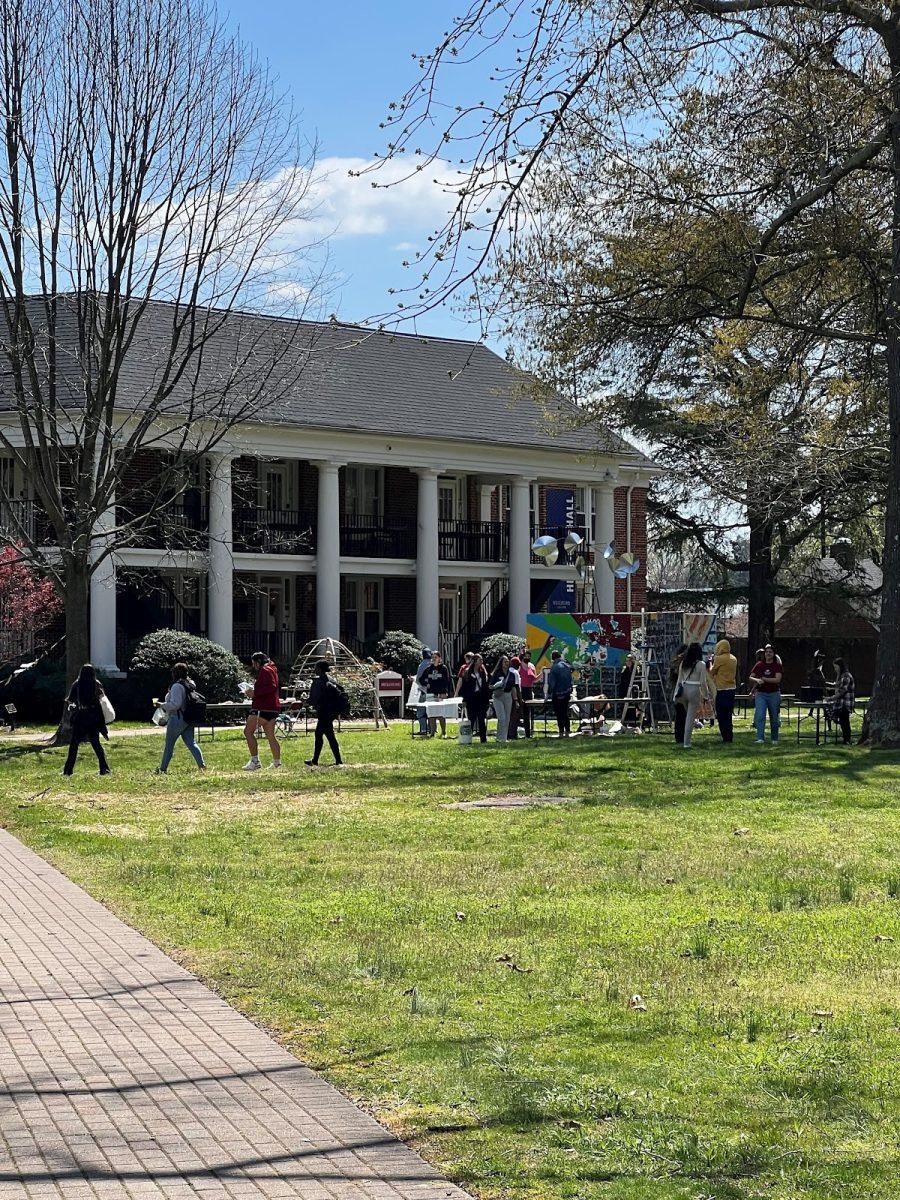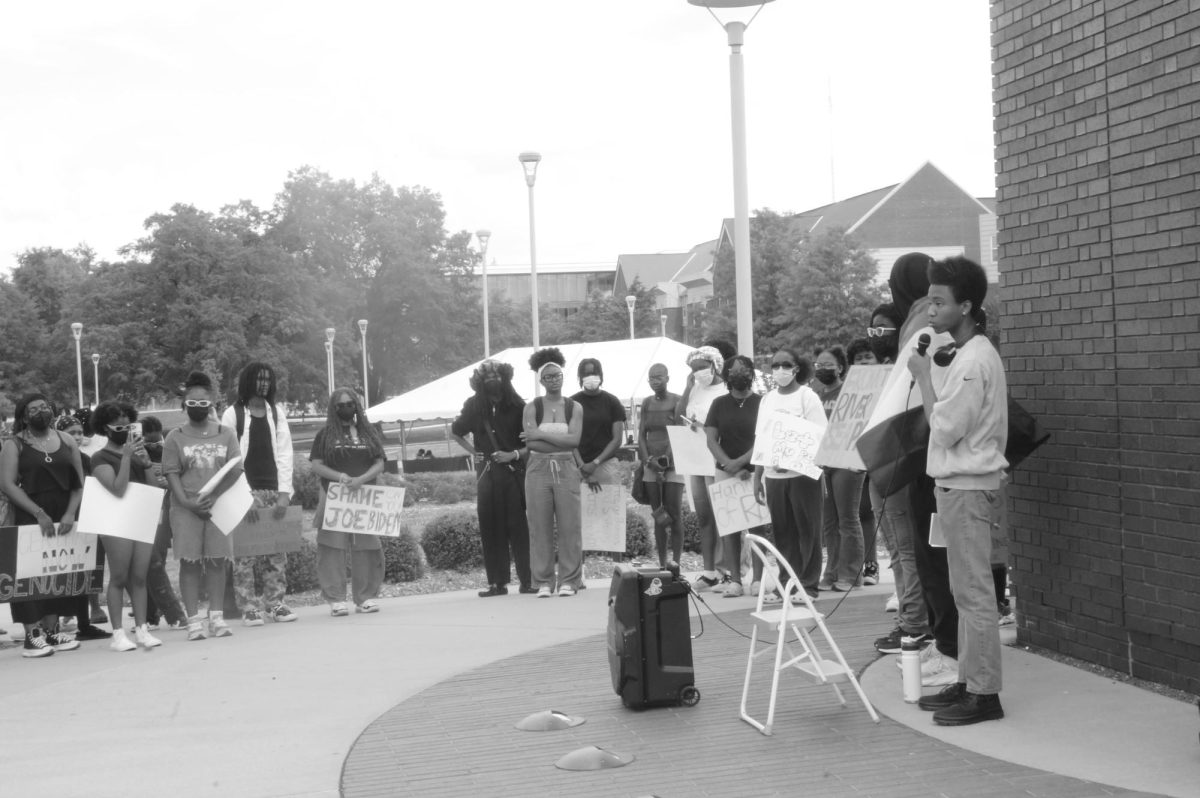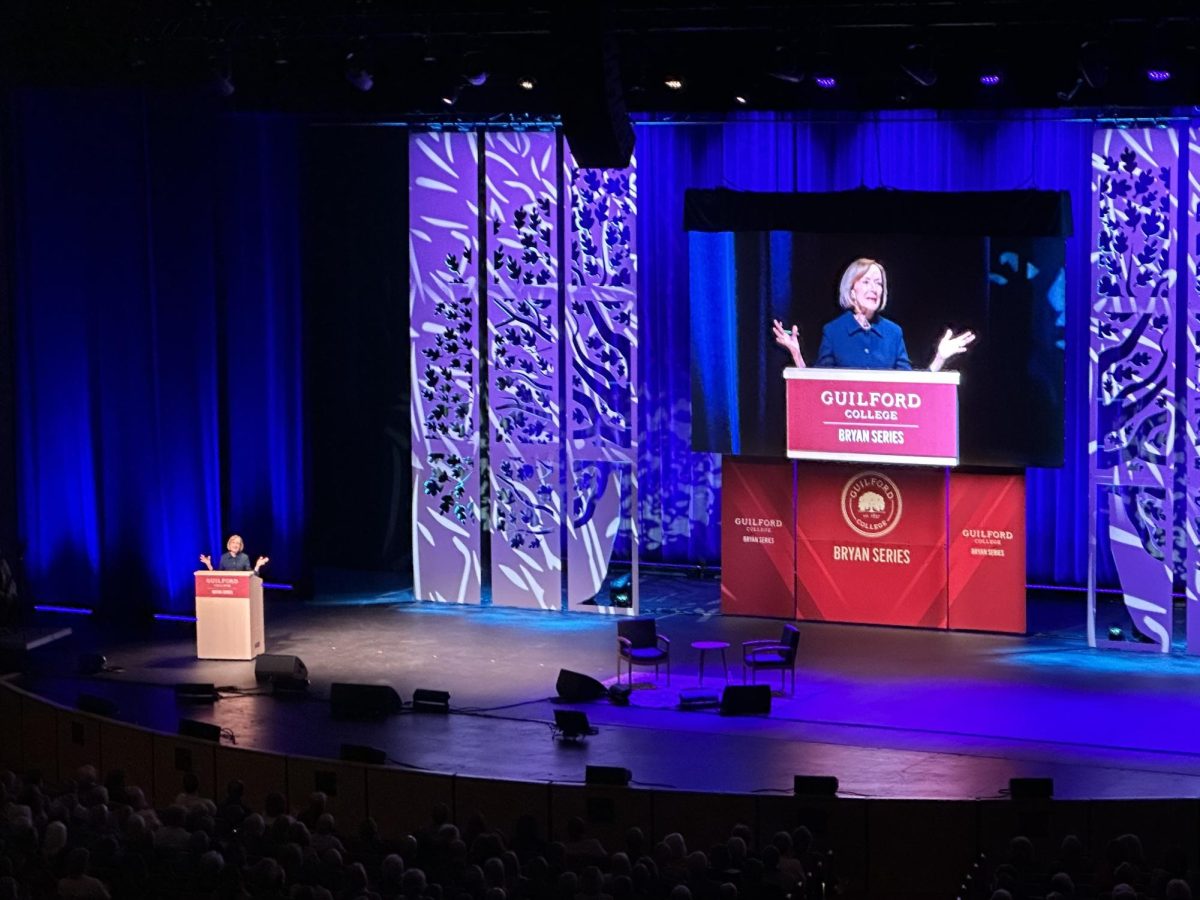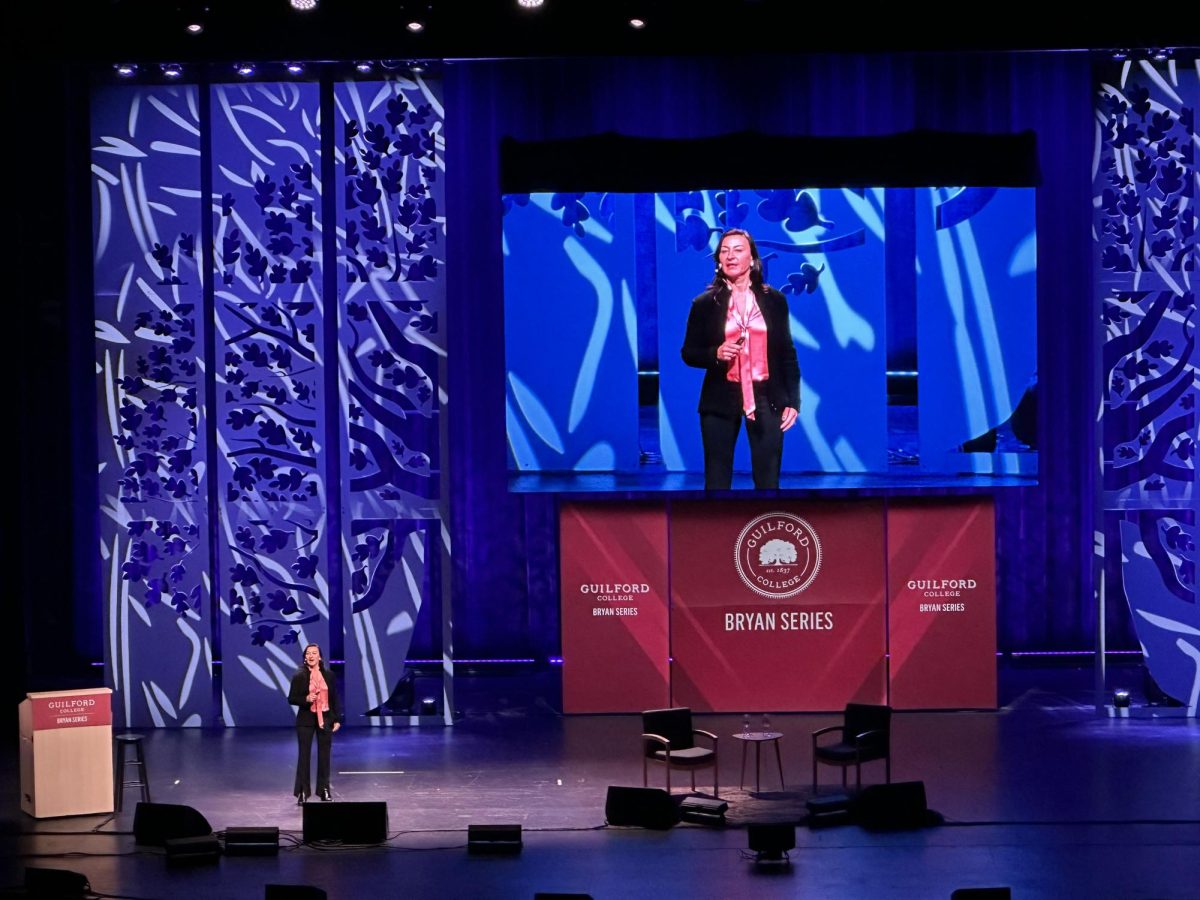On April 8-9, Guilford College welcomed Susan Briggs — the soon-to-be first recipient of an honorary degree in Guilford’s 178 years of history.
Briggs is a senior surgeon at Massachusetts General Hospital, associate professor of surgery at Harvard Medical School and director of the International Trauma and Disaster Institute at Mass. General.
On April 8, Briggs arrived on campus and started off the day by attending several classes to talk about her career with students as well as faculty and staff.
“Every country is unique, people are so different and you can learn so much from them,” said Briggs’.
On April 9, Briggs held a presentation about her experiences on humanitarian relief in the West Gallery of Founders.
President Jane Fernandes introduced Briggs by speaking of her many achievements and mentioning the responses to national and international disasters that Briggs’ participated in. Many that were mentioned were well-known attacks and natural disasters here in the U.S.
Briggs began her presentation by showing two different pictures, one in Iran and the other in Haiti, and stating that both countries had the same key commitment, to survive and prosper.
“Unfortunately, medicine knows no boundaries, and medicine is also apolitical.” said Briggs.
Briggs remembered several students that wanted to go into veterinary medicine, so she named out the whole spectrum of specialties that was involved with the response.
“I really liked when she discussed the apolitical nature of medicine and how it helped bridge some gaps in U.S. international relations, which to me is something that you wouldn’t hear many doctors talk about because of the controversy,” said first-year Caleb Anderson.
Later, Briggs’ explained the National Disaster Medical System, and their three components: medical response, movements of patient and medical care. It was based upon the Disaster Medical Assistance Teams — now federalized because of Ground Zero — which have over 7,000 volunteers.
In 1986, Briggs’ started a Boston DMA team.
“The NDMS was looking for individuals to start a disaster team available to deploy as federalized volunteers for U.S. disasters,” said Briggs in an email interview. “I felt Boston had the medical assets to support this system.”
She established the International Medical Surgical Response Team in 1999, designed to work with the disaster teams. It is affiliated with three academic medical centers — Boston, Seattle and Miami.
“Her dedication and service was very impressive throughout her entire career, it’s something that I truly aspire to have during my career.” said senior Lesley Manuh in an email interview about Briggs’ presentation.
While traveling to Iran and many other countries, there were many challenges. One of them was organizational challenges, where in Iran the Red Cross was medical but also political.
She shared an anecdote about a six-week-old boy that could not breathe. After working with the baby for three hours, she found out that the father smoked opium; the baby had breathed it in second-hand.
She later moved onto her experience in the disaster in the Haiti earthquake in 2010.
Their U.S. field hospital was there for six weeks. They saw 3,000 patients, 300 operations and many of them were general surgery.
A challenge in Haiti was who to save. There were people with tetanus or earthquake injuries, but the system already had a rule — only people with earthquake injuries were allowed to be evacuated from affected area.
When the presentation was over, there was room for Q&A.
There were several questions that were answered but one that she lasted a good amount of the session explaining: What did you learn from working at different countries?
“There’s situations that conventional medicine doesn’t allow you to learn, so I advise any of those who want to go into the medicine field that it’s better to learn on ground,” said Briggs in response to the question.
Susan’s honorary degree nomination was approved early in 2014 by an already formed, Honorary Degree Committee. Each committee member was appointed by Clerk’s Committee, the president and Board of Trustees.
“I loved her so much,” said first-year Lizzie Ruphrech. “Mostly because of the way she is. She doesn’t act to be in higher law than anybody else because of what she has achieved. She’s a person with no limits, and it’s something that people should really look up to.”
Susan Briggs will be returning to Guilford to receive the award and to speak at Commencement on May 16.






